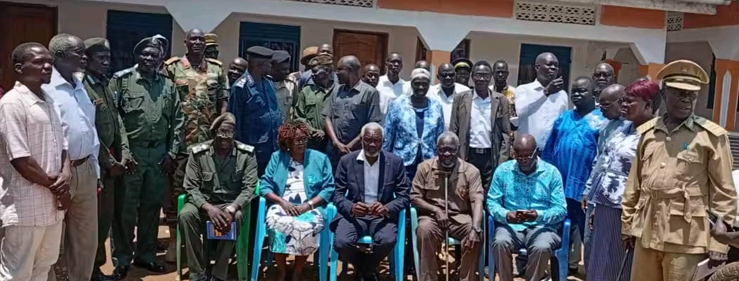National Minister for Parliamentary Affairs Mary Nawai on Wednesday officially launched wildlife conservation activities in Ibba County, marking a major step toward environmental protection and economic empowerment in Western Equatoria State.
Speaking during the launch at Ibba Freedom Square, Nawai emphasized the importance of conservation in creating jobs, boosting tourism, and promoting sustainable development.
“We are here to support the launch of wildlife and conservation activities in Ibba. This initiative is vital for preserving our natural resources and uplifting our communities,” she said. “This will create job opportunities for youth and attract tourists. It is a great opportunity for economic growth in the county.”
The minister lauded the Ministry of Wildlife, Conservation and Tourism for spearheading the initiative and called on the people of Ibba to embrace it.
She was accompanied by General John Daniel, Commissioner for Financial Intelligence, and several national lawmakers. They were received by the Western Equatoria State Minister of Local Government, Bakoyogo James Severino, and Ibba County Commissioner Wilson Tetela.
For his part, Commissioner Tetela welcomed the initiative and assured full community support.
“This is about more than animals; it is about protecting our environment and creating a path to economic transformation,” he said.
The conservation program in Ibba is being implemented in partnership with the Ejionjio Foundation, a national development organization, whose governance manager, Aggrey Cyrus Kanyikwa, said Ibba is the third county to benefit, following Maridi and Mundri West.
He also revealed that Ejionjio Foundation signed an agreement with the national wildlife ministry to help manage Kidepo Game Park in Eastern Equatoria and Lantoto National Park, which spans Yei River, Maridi, Ibba, and Mundri West counties.
“Our goal is to connect communities with conservation through job creation, tourism, and local ownership,” Kanyikwa said.
South Sudan, home to vast biodiversity and major wildlife migrations, faces conservation challenges due to years of conflict and poor infrastructure. However, renewed government efforts and local partnerships are reigniting hopes for sustainable eco-tourism and development.
The launch in Ibba reflects a shift from policy to community-led conservation, bringing real benefits to the people of Western Equatoria and beyond.




